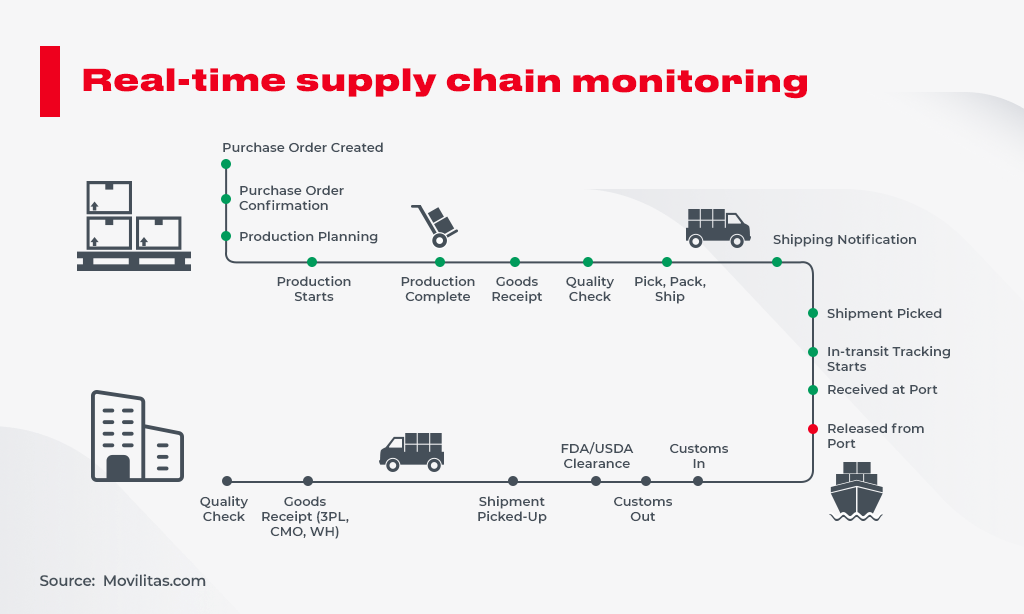In our interconnected technological cosmos, information transcends the realm of numbers and becomes the driving force behind modern transportation. The marine industry understands the revolutionary potential of large amounts of data, thanks to its intricate web of international distribution lines and efficient conveyance systems. Let us delve into the enthralling developments that are influencing the future of shipping through the use of vast amounts of data.
Predictive Analytics for Efficient Routing
The days of
strategizing cargo routes based on rigorous timetables and educated guesses are
long gone. For the start of massive data analysis, companies specializing in
logistics can use historical records, meteorological understandings, updates on
road conditions, and even current information from the Internet of Things
devices to enhance delivery paths. This reduces fuel usage and ensures
on-time arrivals, eventually increasing customer happiness.
Real-Time Cargo Tracking
Transparency is
essential in logistics, acting as a driving force. Patrons and those interested
in the subject all want rapid access to detailed updates on the location and
status of their shipments. Logistics organizations may give precise and
up-to-date updates on cargo movement by using the power of enormous amounts of
data, significantly decreasing the risk of theft, injury, or unjustified
delivery delays.
Inventory Management and Demand Forecasting
Inventory orchestration
is the foundation of a successful logistics company. Logistics businesses can
utilize big data analytics to precisely monitor their supply levels, analyze
prior patterns in consumer demand, and generate extraordinarily exact projections
about future needs. As a result, these companies may precisely adjust their
inventory levels, cutting the costs of stock retention and lowering the risk of
inventory depletion.
Preventive Maintenance
Vehicle malfunctions
have proven to be a source of costly delays in the logistics industry.
Nonetheless, the advent of big data and Internet of Things (IoT) sensors has
heralded a new era of predictive maintenance. These frameworks constantly
monitor the current state of automobiles and machines, alerting operators to
potential problems long before they become costly breakdowns.
Sustainability and Emissions Reduction
In response to growing
global environmental concerns, logistics companies are leveraging the potential
of big data to reduce their carbon footprint. By utilizing insightful
data-driven perspectives about fuel usage, extensive route planning, and
vehicle efficiency assessments, these organizations are actively involved in
decreasing emissions and contributing to the growth of a greener future.
Blockchain for Transparency and Security
The enchanted world of
blockchain technology, typically associated with the ethereal concept of
digital currency, is rapidly developing within the vast expanse of logistics
due to its unparalleled ability to create indestructible and immutable
records. Its many applications include commodity identification, speeding up
the complex dance of customs operations, and boosting the ethereal veil of
transparency that shrouds the intricate tapestry of supply chains.
Enhanced Customer Experience
Customers' expectations
for timely, dependable, and user-friendly transport services have grown in
response to the rise of online purchasing. The use of significant data analysis
helps logistics businesses to provide customized solutions such as exact delivery
timetables and real-time package tracking, hence improving the overall quality
of client engagements.
The Rise of Autonomous Vehicles
Innovative and
self-driving systems have the potential to impact the future of shipping.
Experiments to deploy self-driving trucks and drones, which have the potential
to revolutionize final-leg delivery, are already beginning. The seamless
integration of massive amounts of data with artificial intelligence is key to
guaranteeing the safe and efficient operation of these achievements.
Big data is the great
driving force propelling the logistics sector into an exciting new era of
enhanced efficiency, sustainability, and an unwavering dedication to customer
satisfaction. With these astounding trends continuing to improve, we may be
able to anticipate a future in shipping distinguished by exceptional speed,
cost-effectiveness, and a strong commitment to environmental concerns. The
significant influence of big data on logistics goes far beyond technological
advancements; it is a dramatic revolution that is reshaping the entire fabric
of the shipping industry.
"Big data sets
sail, steering logistics into a future where efficiency, transparency, and
sustainability chart our course."


